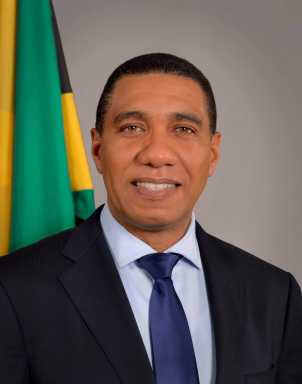Listeners:
Top listeners:
-
play_arrow
RadioJLR Just Press Play
Clarke condemns violence against protestors, human rights violations in Bangladesh

Caribbean-American Democratic Congresswoman Yvette D. Clarke on Monday condemned what she described as “prolonged violence against protestors and escalating human rights violations in Bangladesh,” expressing concern for growing national instability following Prime Minister Sheikh Hasina’s sudden resignation and departure.
“I am deeply concerned by the violence and human rights abuses in Bangladesh that have marked a severe effort by the governing Awami League Party to crack down on the peaceful assembly of its people, leading to the deaths of hundreds of protestors and the injuring of thousands more,” Clarke, the daughter of Jamaican immigrants, whose 9th Congressional District in Brooklyn comprises significant number of Bangladeshi nationals, told the Caribbean Life.
“What began as a student protest against their nation’s inequitable quota system and the lack of public employment it engendered has evolved into a national and intergenerational movement to reject the brutality of the ruling party,” she added. “Today, we witnessed the events of past weeks culminate in demonstrators storming Prime Minister Sheikh Hasina’s home and forcing her resignation and exodus from the country, signaling the end of her 15-year autocratic and repressive rule over Bangladesh.
“In this pivotal movement, it is critical the United States takes the necessary steps to support our longtime ally and secure its national stability through this crisis,” continued Clarke, commending the Biden-Harris administration’s past action to impose sanctions on the Rapid Action Battalion, “which has become directly responsible for numerous abuses over recent weeks.”
“It is imperative we continue to hold government officials accountable for the inhumane treatment of its citizens and condemn any further acts of violence that have, for too long, threatened democracy in Bangladesh and the individual freedoms of its people,” the congresswoman said.
She said the United States has “a responsibility to support the transition from the incoming interim government to a new governmental body, centered in democratic ideals and the rights and liberties of every Bangladeshi. We must uphold it.”
On Monday, the US Department of State ordered the departure of non-emergency US government employees and family members from Bangladesh.
The department warned travelers not travel to Bangladesh “due to ongoing civil unrest in Dhaka.”
It said violent clashes have occurred in the city of Dhaka, its neighboring areas, and throughout Bangladesh, and that the Bangladeshi Army is deployed nationwide.
The State Department noted that Dhaka’s Hazrat Shahjalal International Airport temporarily paused operations on Monday.
“Because of security concerns US Embassy personnel in Bangladesh are subject to some movement and travel restrictions,” the State Department said. “The US Government may have limited ability to provide emergency services to US citizens in Bangladesh due to these travel restrictions, a lack of infrastructure, and limited host government emergency response resources.”
In the meantime, top United Nations officials underscored the need for a peaceful and democratic transition in Bangladesh after Prime Minister Sheikh Hasina resigned and fled the country on Monday in the face of massive anti-Government protests, which claimed the lives of hundreds of demonstrators in recent weeks.
UN Secretary-General António Guterres “continues to closely follow developments in the country,” said UN Deputy Spokesperson Farhan Haq. “He urges calm and restraint by all sides and emphasizes the importance of a peaceful, orderly and democratic transition.”
The UN chief also expressed “full solidarity with the people of Bangladesh” and called for the full respect of their human rights.
“He continues to underscore the need for a full, independent, impartial and transparent investigation into all acts of violence,” Haq said.
The UN said more than 300 people, including many children, are said to have been killed since student-led protests erupted in July, and more than 20,000 injured.
The bloodshed was among the worst ever witnessed in Bangladesh, the UN said.
It said the unrest began in July with protests by students against civil service job quotas.
Though the scheme was withdrawn, the UN said protests erupted again last week, with the key demand for Prime Minister Sheikh Hasina to quit and for those responsible for the violent suppression of demonstrations to be held accountable.
Hasina had been in power since January 2009, having earlier led the country from 1996 to 2001, the UN noted.
It pointed to media reports that indicate that her departure from Bangladesh was met with widespread jubilation across much of the country.
There were also reports of ransacking and arson at the Prime Ministerial residence; a museum commemorating the country’s first President and Hasina’s father, Sheikh Mujibur Rahman; and homes of senior government officials.
Bangladesh’s army chief announced in a televised national address following her departure that an interim government would be formed, although no further details were provided, the UN said.
Also on Monday, Volker Türk, UN High Commissioner for Human Rights, underscored the importance of the transition of power in Bangladesh being “peaceful and guided by human rights”.
“The transition must be conducted in a transparent and accountable way, and be inclusive and open to the meaningful participation of all Bangladeshis,” he said. “There must be no further violence or reprisals.”
Türk highlighted that democratic order and the rule of law must be ensured as quickly as possible, and that all emergency measures must be limited in accordance with international law.
The High Commissioner reiterated his call for a “comprehensive, impartial and transparent investigation into all alleged human rights violations since July.
“In the current circumstances, and to ensure public confidence, an investigation should be conducted independently, and my Office stands ready to support this,” he said. “The demands for justice and reform must be heeded.
“This is a time for national healing, including through an immediate end to violence, as well as accountability that ensures the rights of victims to truth and reparations, and a truly inclusive process that brings the country together on the way forward,” Türk added.
Similar posts
© 2025. All Rights Reserved by Radio-JLR



Post comments (0)